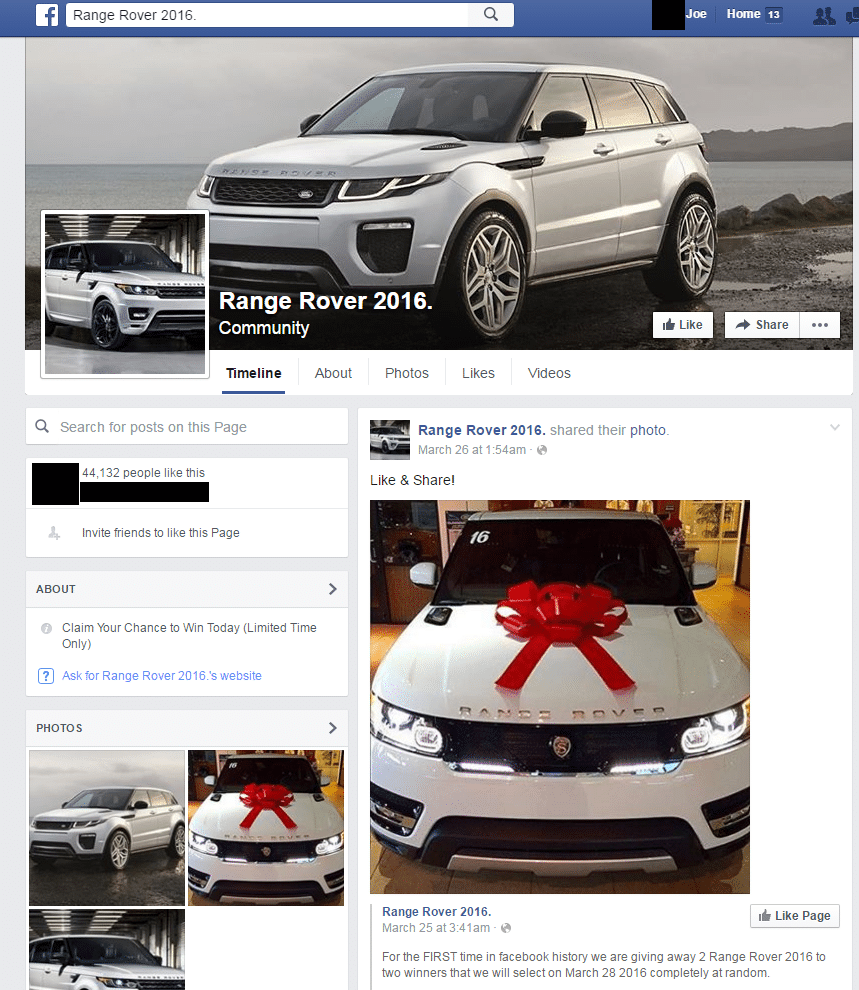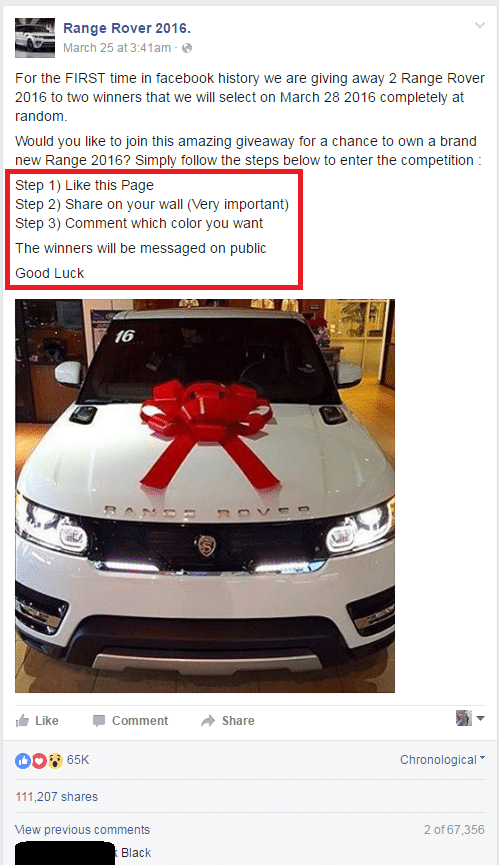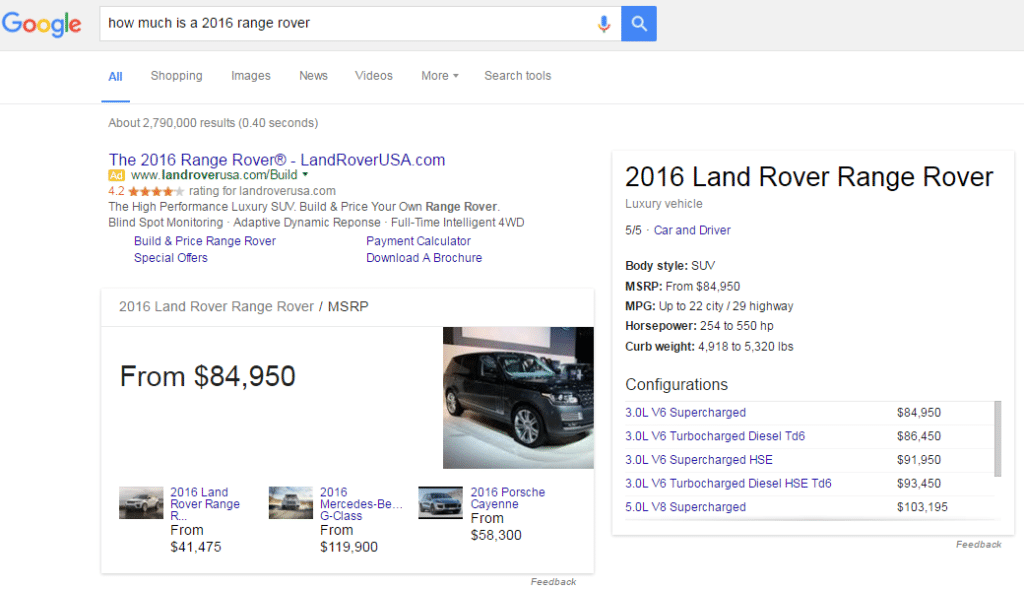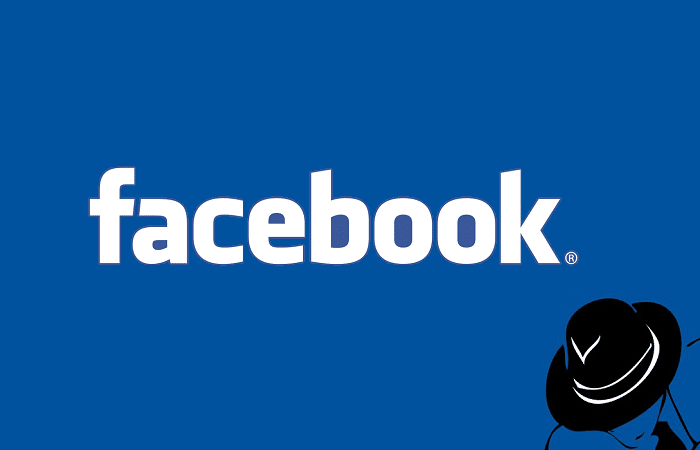Update: the page grew by 2,000+ likes in the time it took to write this (about 35 minutes)
A friend of mine shared a post on Facebook this morning about winning a new Range Rover and the wording looked really similar. When I visited the page I was reminded of the saga of Jordan Embry and Aaron Simon, the blackhat Facebook pages I exposed last year. Those pages used a combination of empty promises of wads of cash, attractive men, and fancy cars to entice women (and some men) of Facebook to promote their pages for free. In turn those fake millionaires, of which more were discovered later on but that’s another story for another day, shared content to a handful of Upworthy type websites with click-baity headlines that were packed with emotion and calls to action. They also shared hundreds of quote graphics with motivational messages. Their end goal was pretty apparent, drive hundreds of thousands of clicks from Facebook to cheap, possibly automated, websites with crap content and make money from Google Adsense. And it might have worked if it wasn’t for this meddling SEO (and I’m sure dozens of other curious folks that peaked behind the curtain).

It would appear that the forces behind cultivating fake millionaires eager to giveaway money in 2015 to drive likes to content farms, is now creating what appear to be fake luxury automotive brand pages to drive up like counts, and they are doing so with staggering success. At 14,000 new likes per day on average the page will hit the numbers of fake millionaire Aaron Simon in just under 12 days and will reach the heights of fake millionaire and mogul Jordan Embry, who had 535,000 likes when I last checked in on him, in just over a month and one week at 38 days.
Why are these pages so successful at tricking such large volumes of Facebook users? It’s a bit of simple psychology based on how humans measure risk vs. reward. By nature most humans are risk-averse, that is we instantly weigh a situation we’re put in and measure our potential losses versus our potential gains. If the possible losses are too high of a cost in relation to the potential gains including large volumes of money, loss of shelter, loss of food source, endangering progeny, or loss of own life, then most humans would avoid that situation if possible. This is why a majority of games at a Casino require such a small amount of money, because they want to lower the anxiety caused by risk vs. reward thought processing.

Each individual on Facebook who sees the promise of a free Range Rover immediately weighs what they are giving in exchange for the potential to win that high end luxury vehicle. Since the investment on the part of the individual requires little time, no money, and can be done once and then forgotten about and the vehicle is worth far more, there is essentially nothing to lose. Even if a person has no actual understanding of the real world value of the Range Rover, they recognize the brand name as one that is high end and that should be sought after due to how the company has positioned itself through marketing over the decades. Only the highly skeptical or slightly paranoid individuals that are concerned for the safety of their data / privacy / money will see the offer of a Free Range Rover on Facebook as something to avoid or raise alarm about.
Or, as my friend put it when asked
“Yeah it’s probably fake but if it’s not it was worth it”
As long as people perceive low risk and high reward from these fake pages on Facebook they will continue to be a valuable tool to the Blackhats leveraging Facebook audiences and a little bit of psychology to make money off of advertising.
Google answer box on how much a 2016 Range Rover is. Clearly a few seconds on Facebook is worth the unlikely chance that an individual will win something of this monetary value.

